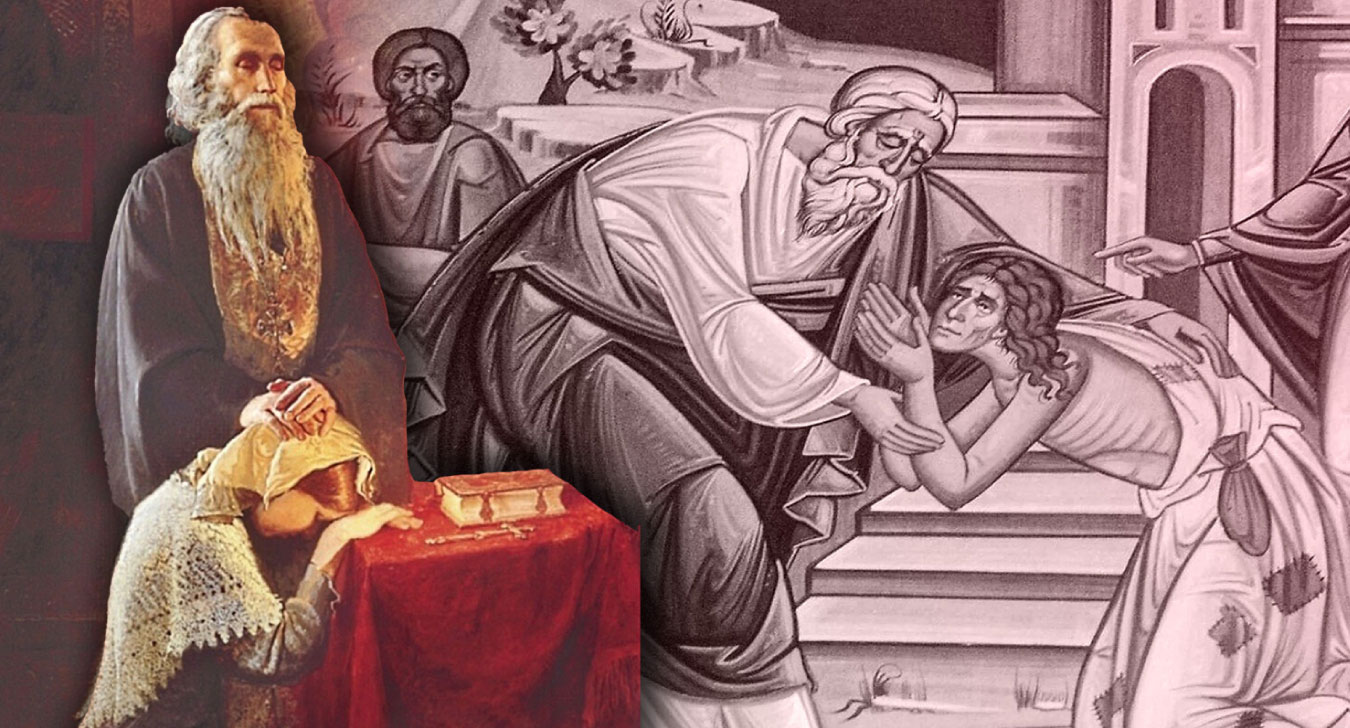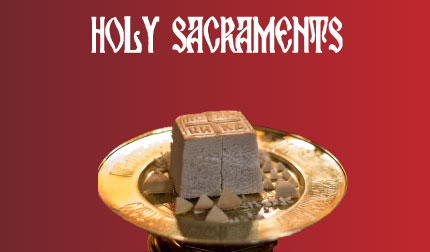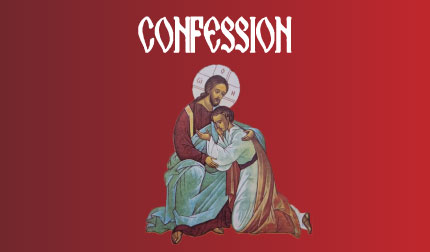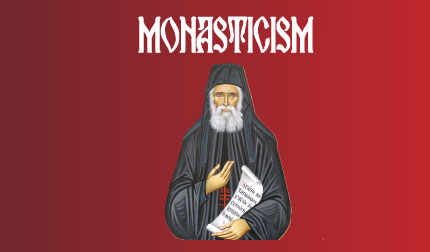Holy Confession

A Guide to Confession in Orthodox Christianity
Confession is not merely the recounting of sins but a profound return to the embrace of the Father, echoing the journey of the prodigal son. It is an encounter with Christ, who through the priest as His living icon, receives us with compassion, eager to restore the garment of grace. This sacred mystery is an act of spiritual healing, a renewal of our baptismal purity, and a pathway to restored communion with God and His Church.
The Nature of Sin and the Call to Repentance
Sin, in the Orthodox understanding, is not merely the breaking of rules but a severing of relationship — a distortion of our likeness to God. As Saint John Chrysostom teaches, "Sin is the wound, repentance is the medicine." Confession, then, is the sacrament through which the Great Physician heals the soul’s infirmities, calling us to genuine repentance, which the Fathers describe as a "second baptism in tears."
Preparing for Confession
Self-examination is the foundation of confession. In prayerful silence, stand before the mirror of the Gospel. Ask the Holy Spirit to illumine your heart, for as Saint Ephraim the Syrian writes, "Without the Spirit, no one can see their own faults." Consider the Ten Commandments, the Beatitudes, and the words of Christ in the Sermon on the Mount. Reflect on your relationship with God—have you neglected prayer, worship, or the reading of Scripture? Examine your conduct towards others—have you harbored anger, pride, or withheld forgiveness?
Avoid vague generalities
Speak plainly, as if before Christ Himself, and acknowledge the particular wounds of the soul. The Church Fathers caution against the deception of self-justification. Confess with humility, as one who entrusts a broken vessel to the potter’s hands.
The Act of Confession
Approach the priest, not as a judge, but as a father and spiritual physician. Bow your head and begin with the sign of the cross, saying: "I confess to the Lord my God and before you, my spiritual father, all the sins of my life..."
Lay bare the heart with simplicity.
There is no sin too great that cannot be forgiven; the abyss of God's mercy is deeper than the abyss of our sin. Saint Isaac the Syrian reminds us, "No one has sinned as much as God has forgiven."
After Confession
Upon the priest’s prayer of absolution, do not cling to past guilt. The saints tell us that to doubt God’s forgiveness is to insult His mercy. Rather, with thanksgiving, receive this gift of grace and endeavor to walk in the light. Confession is not an end but a beginning — a stepping forth into renewed life, an opportunity to grow ever more into the image of Christ.
Regular confession nurtures the soul. As Saint Gregory of Nyssa notes, "Just as the body requires frequent washing, so too does the soul." Approach often, for in this mystery, we encounter not condemnation, but the unfathomable love of God who desires that all be saved and come to the knowledge of the truth.
Some Self Examination Questions
- 1. Have I loved God with all my heart, soul, and mind, or have I placed other things before Him in my life?
- 2. Have I used the name of God irreverently, in anger, or without proper reverence?
- 3. Have I kept the Lord’s Day holy by attending the Divine Liturgy and resting in the joy of His Resurrection?
- 4. Have I honored my parents and elders, showing respect and gratitude for their sacrifices and guidance?
- 5. Have I been prideful, thinking of myself as better or more important than others?
- 6. Have I harbored anger, resentment, or unforgiveness toward anyone?
- 7. Have I engaged in gossip, slander, or spoken harshly, causing harm to others with my words?
- 8. Have I judged others, forgetting that Christ alone is the true Judge?
- 9. Have I been truthful in all my dealings, or have I lied, exaggerated, or concealed the truth?
- 10. Have I been pure in thoughts, words, and deeds, or have I entertained lustful or impure desires?
- 11. Have I stolen, cheated, or taken advantage of others in any way?
- 12. Have I been generous to the poor and those in need, or have I been selfish with my time, talents, or resources?
- 13. Have I misused alcohol, drugs, or food, seeking comfort or escape in material things rather than in God?
- 14. Have I envied others' success, possessions, or gifts, failing to be content with what God has given me?
- 15. Have I been lazy or neglected my responsibilities at home, work, or in the Church?
- 16. Have I allowed my heart to be consumed by worldly concerns, anxieties, or despair, forgetting to trust in God’s providence?
- 17. Have I failed to show love, patience, and humility in my relationships with family, friends, and strangers?
- 18. Have I been grateful for the blessings in my life, or have I complained and grumbled in times of difficulty?
- 19. Have I taken steps to correct the sins I have confessed before, or have I fallen repeatedly without sincere effort to repent?
More In-Depth
The Holy Sacraments
In the Orthodox Church, the sacraments — often referred to as the Holy Mysteries — are divine means through which the grace of God is imparted to the faithful. These Mysteries are not simply rituals but encounters with the living Christ, guiding the believer into deeper union with God and participation in the life of the Church.
Holy Confession
Confession is not merely the recounting of sins but a profound return to the embrace of the Father, echoing the journey of the prodigal son. It is an encounter with Christ, who through the priest as His living icon, receives us with compassion, eager to restore the garment of grace.
Monasticism
Monasticism in the Orthodox Church is the path of total dedication to God through prayer, asceticism, and communal or solitary life. It is often described as “angelic life” on earth, where men and women renounce worldly attachments to seek communion with God in purity of heart.





